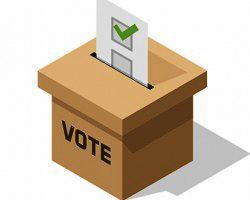Some 25 years after South Africa became a democratic state, the Constitutional Court on Thursday ruled that a part of the electoral laws the country has been using to run the polls is “unconstitutional.”
The court made the ruling in response to a case brought to it by civil society organisation, the New Nation Movement, and other complainants.
The complainants told the court that, being barred from running for political office as individuals because they did not belong to political parties, was unconstitutional.
In its ruling, the court agreed with the complainants that something was indeed amiss in the current electoral law for failing to make provisions for individuals – independent candidates — to participate in politics during national and regional polls.
“It is declared that the Electoral Act of 1998 is unconstitutional to the extent that it requires that adult citizens may be elected to the national assembly and provincial legislatures only through their membership of political parties,” judge Mbuyiseli Madlanga said.
He added: “The declaration of unconstitutionality is prospective with effect as of the date of this order but its operation is suspended for 24 months to afford Parliament an opportunity to remedy the defect.”
Independent Electoral Commission chairperson Glen Mashinini welcomed “the clarity the court has provided to the interpretation of the rights of citizens to stand for public office.”
“We will study the judgment in detail to reflect on its full implications for the current electoral system and legislative framework governing national and provincial elections.”
NM/jn/APA


